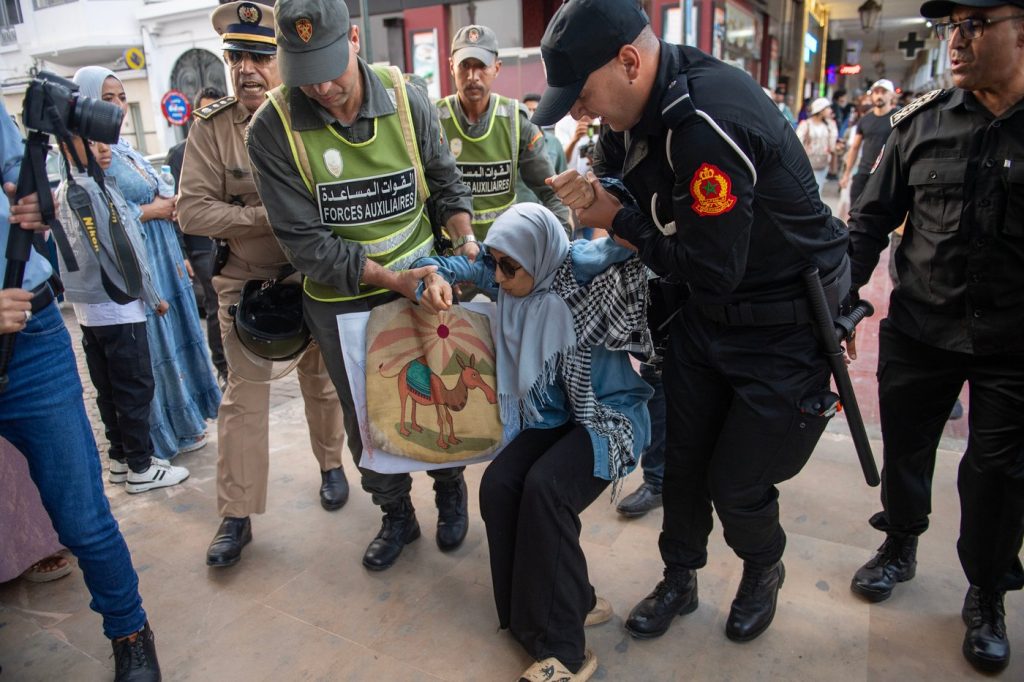CASABLANCA, Morocco (AP) — Youth-led protests have erupted across Morocco, marking some of the largest anti-government demonstrations in recent years. These protests, sparked by a growing sense of frustration among young Moroccans, challenge the government's spending priorities, particularly in light of the ongoing shortcomings in healthcare and education.
Demonstrations took place in at least 11 cities, with participants denouncing government corruption and criticizing the significant financial investments being made for upcoming international sporting events, including the 2030 FIFA World Cup and the Africa Cup of Nations scheduled for later this year. Protesters voiced their concerns through chants such as, “Stadiums are here, but where are the hospitals?” highlighting the perceived neglect of essential public services.
In preparation for the FIFA World Cup, Morocco is investing heavily in constructing new stadiums and upgrading existing ones. However, these efforts have coincided with a growing public outcry regarding the country’s health system, especially following a tragedy in which eight women died during childbirth in a public hospital in Agadir, approximately 300 miles south of the capital, Rabat. This incident has only intensified the anger from earlier protests in regions still affected by the devastation of the 2023 earthquake.
The Moroccan Association for Human Rights reported numerous arrests during the protests, with many demonstrators having faced physical assault. Some were released but the organization condemned what it terms a crackdown on free expression. In a notable change from past demonstrations, which were often organized by unions or political parties, the recent protests were largely coordinated through social media platforms like TikTok and Discord, appealing especially to Gen Z citizens.
Groups such as “Gen Z 212” and “Morocco Youth Voices” emphasized peaceful demonstrations and responsible discourse while their supporters expressed more radical demands for change. A protester named Youssef, a 27-year-old engineer, expressed a desire for systemic reform beyond just health and education, stating, “I want better salaries, better jobs, low prices, and a better life,” while remaining anonymous to avoid repercussions for attending the unauthorized gathering.
With those born between 1995 and 2010 comprising the largest demographic group in Morocco, the protests have been referred to as the “Gen Z protests.” Young Moroccans appear to draw inspiration from international youth movements, including those in Nepal, that express widespread discontent over issues like corruption and lack of opportunities.
The public's frustration has also been vividly displayed outside hospitals in urban and rural regions, where demonstrations have targeted the decline of public health services. Government officials, in defense of their priorities, have claimed that challenges in the health sector result from longstanding issues rather than current spending choices. Prime Minister Aziz Akhannouch maintained that the government has made significant progress in health reforms and investments, citing ongoing efforts to build hospitals across the country.
In response to public pressure, Morocco's Health Minister Amine Tahraoui recently dismissed the director of the Agadir hospital and several regional health officials. Despite these actions, alarming statistics from the World Health Organization reveal that Morocco has only 7.7 medical professionals per 10,000 residents, significantly lower in areas like Agadir, where the figure stands at just 4.4 compared to the recommended ratio of 25 per 10,000.











